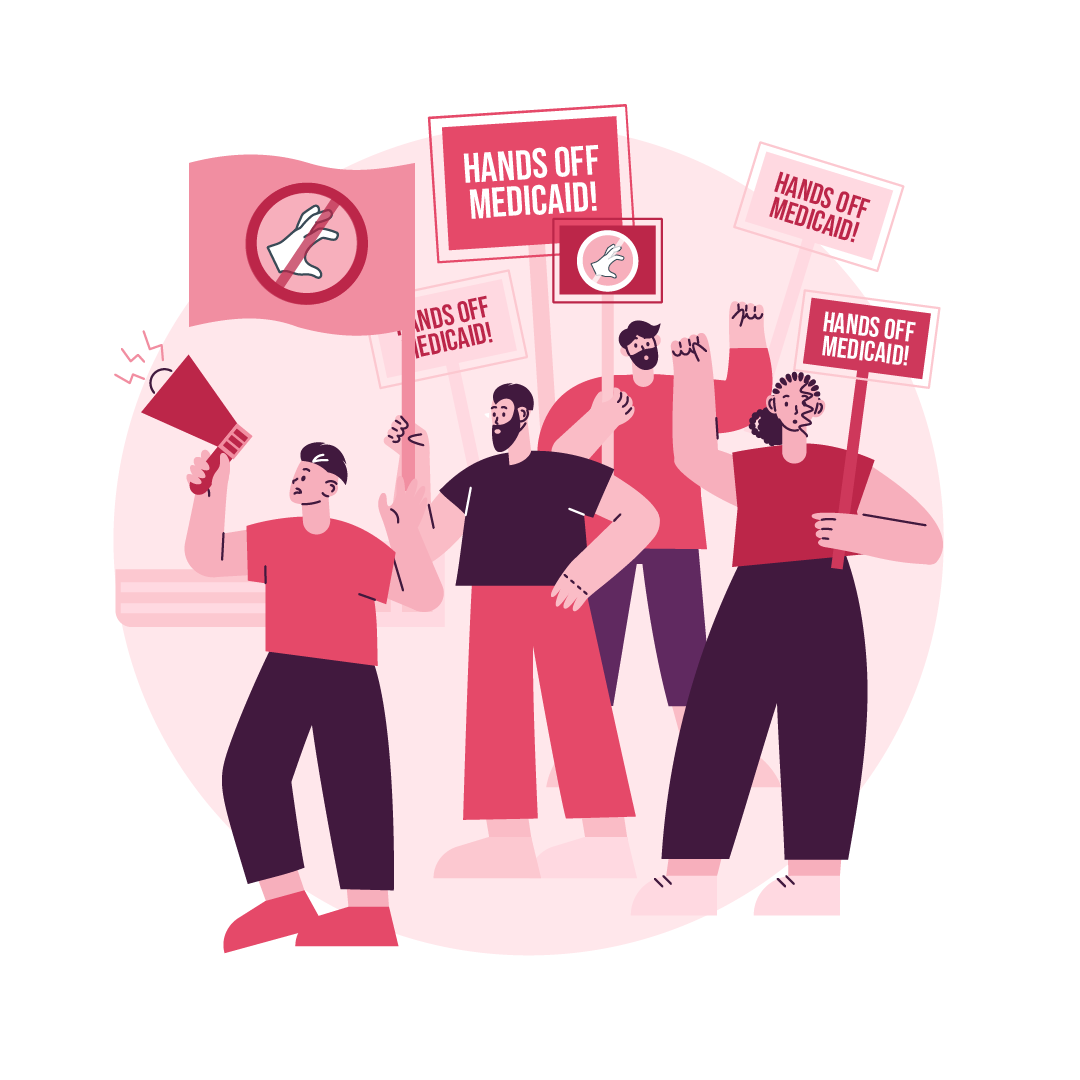
The Tax Bill Is Bad for America’s Health
12.20.2017
Update 12/20: Congress passed the tax plan and President Trump will sign it into law soon. Both the rushed, secretive process used to draft the bill and the bill itself are travesties.
The tax plan was written with such secrecy and speed that we probably won’t know all the details—and all the impact—for some time. But one thing is certain: If passed, it will gut health coverage for millions and set the stage for massive cuts to Medicaid, Medicare, and the Affordable Care Act.
Tax plan opposed by health care providers, insurers, and actuaries
The final tax deal remains a health care bill, eliminating a key provision of the ACA. That’s why the American Academy of Actuaries said that the Senate version of the bill would “lead to premium increases” and “likely result in a deterioration of the risk pool.” Similarly, major hospital, physician, and insurer associations strongly opposed the bill in a joint letter.
The tax bill will affect America’s health care in four critical ways. The bill will:
- Increase the ranks of the uninsured by 13 million, including 5 million fewer people who get coverage through Medicaid.
- Make insurance less affordable.
- Jeopardize coverage for people with pre-existing conditions, particularly in combination with other Trump Administration efforts to sabotage ACA protections.
- Set the stage for huge cuts to Medicaid, Medicare, and the ACA by raising the deficit, including a possible automatic $25 billion cut to Medicare.
Here’s how the tax bill will devastate health care
Increase the ranks of the uninsured by 13 million. The final tax bill repeals the ACA’s requirement that individuals have health insurance or pay a penalty (the “individual mandate”). That alone would result in 13 million more uninsured. That 13 million is not just young, healthy people who think they don’t need insurance. It includes 5 million people who could get Medicaid coverage, and a lot of people with health conditions who will want insurance but won’t be able to afford it anymore. A key reason is that once the penalty is gone, the incentive for younger and healthier people to buy insurance is a lot less. Insurers will likely have a sicker, more expensive pool to cover. Their costs will go up and, as a result, they will jack up insurance premiums or withdraw from the nongroup market entirely. As result of repealing the individual mandate, marketplace insurance premiums are projected to go up about 10 percent a year over the next decade.
Destabilize the insurance market, thereby jeopardizing health coverage for people with pre-existing conditions. As premium increases put health insurance out of the financial reach of people who need and want it, the Trump Administration has announced that it will be dramatically loosening rules on the sale of junk insurance outside of the ACA marketplaces. The combined effect of the tax bill and this executive branch sabotage will be the enormous risk of an unstable market, bare counties and a “death spiral”-like situation in the nongroup market. We’ll be back to the days when people with pre-existing conditions won’t be able to afford coverage.
Repealing the individual mandate will unravel the insurance markets and the ACA. The senators who included the mandate repeal in their tax plan know that repealing the mandate unravels the ACA. They are on record saying as much. Many of them signed on to a Supreme Court brief in 2012 that included the following statement: “….the individual mandate is the heart of the [ACA]. . . without the mandate, the statute’s reforms cannot work as intended. . . without the mandate, both the number of uninsured and the price of premiums would skyrocket.”**
Trigger automatic Medicare cuts. According to the CBO, the tax bill would increase the deficit by a trillion and half dollars or more. There’s a law that requires that new legislation not increase the deficit (Statutory Pay-As-You-Go Act of 2010, PAYGO). If it does, automatic cuts are triggered across the board for dozens of federal programs. Medicare is one. It’s estimated that the tax plan would trigger $25 billion in Medicare cuts in 2018. Medicaid and ACA premium subsidies are exempt from PAYGO cuts, but far from safe.
Massively raise the deficit, setting the stage for big cuts to Medicaid, Medicare and the ACA. Republicans who hate social insurance programs, like House Speaker Paul Ryan, are eager to sign a tax bill that will increase the deficit by up to $1.5 trillion. There’s a reason. As soon as the ink is dry, they will don their phony deficit hawk hats again and demand spending cuts to reduce the deficit they have just ballooned. In fact, in a town hall this month, Speaker Ryan said spending cuts to lower the deficit (now much larger by Republican design) will be the focus next year. Medicaid, the ACA and Medicare cuts and restructuring will be prime ways Republicans will look to address the deficit crisis they have created. Related infographic: Tax Cuts Now Mean Health Care Cuts Later
The tax plan is the set up for cutting health care—both through provisions in the bill itself, like repealing the mandate, and by blowing up the deficit and creating a crisis that Republicans will use as the excuse to cut Medicaid, end the ACA, and restructure Medicare.
For the millions who end up losing health coverage, this is going to be the most expensive tax cut ever.
Visit our action page to learn how to speak out against the tax bill.
**The Republican senators’ brief was filed in National Federation of Independent Business v. Sebelius, opposing the Obama administration, arguing that the Supreme Court should strike down the mandate and the ACA.




